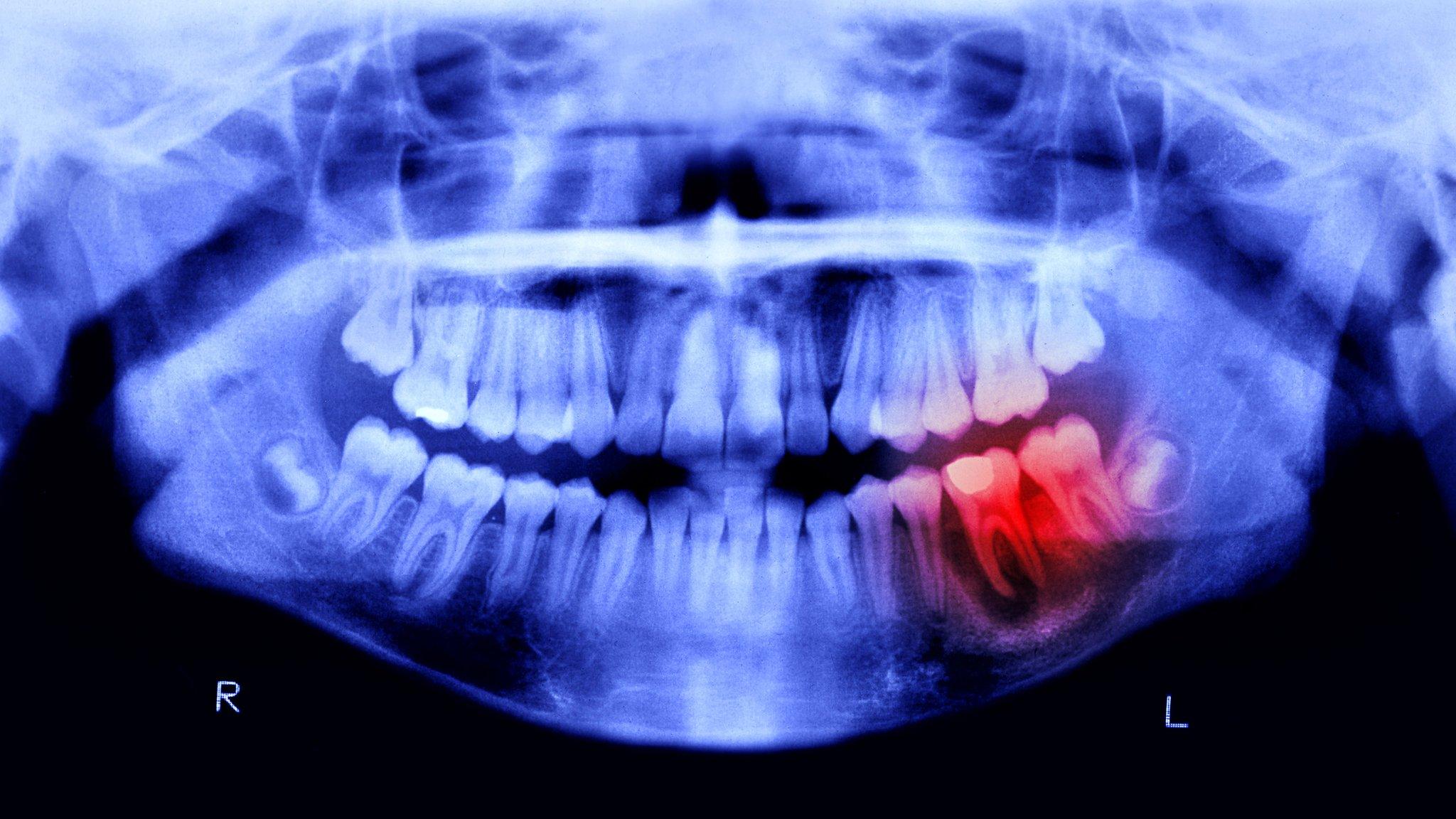Dental services in NI are 'neglecting disabled children'
- Published
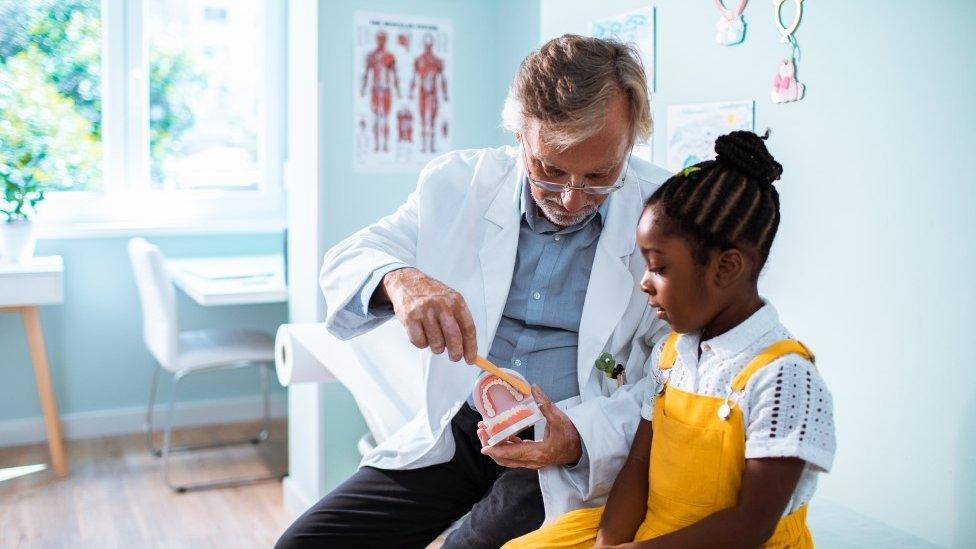
A number of community dental appointments have been cancelled to help ease pressure on the NHS
Children with complex and special care needs are being neglected by dental services in Northern Ireland, two mothers have said.
They have expressed concern over how their children have been unable to receive important dental treatment.
They said a number of appointments have been cancelled as a result of pressure on the health service.
A spokesperson from the British Dental Association said waiting lists were a growing problem.
"We understand that pre Covid-19, this assessment would generally have been within a few weeks but now they might have to wait a couple of months," the spokesperson said.
However, the two mothers said the pre-pandemic waiting lists were also far too long.
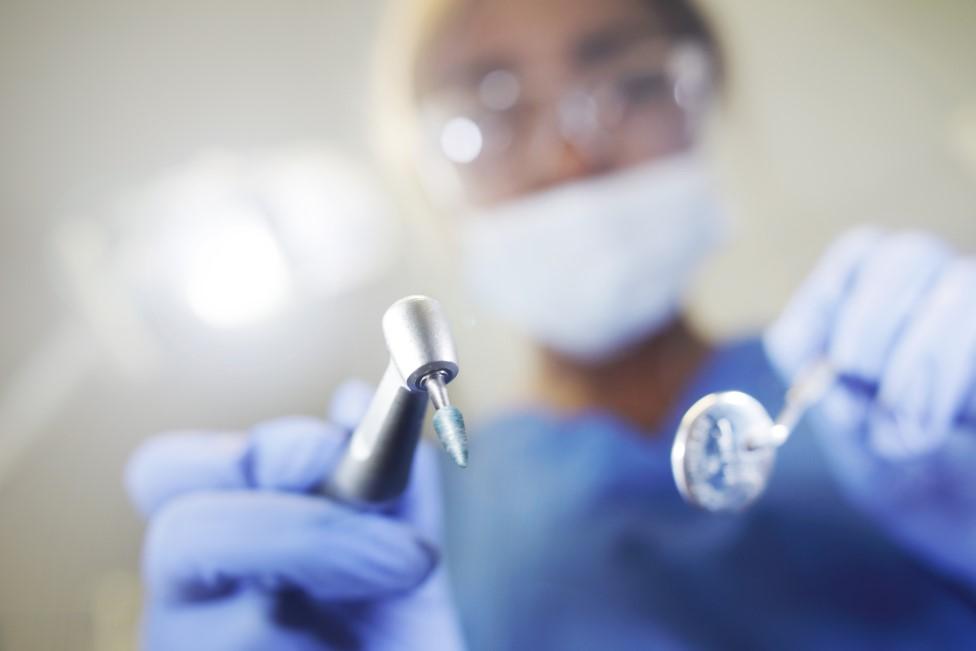
Community dental services are run by the Health and Social Care Trusts
Many people with complex needs face extra barriers to receiving standard dental care.
Community dental services (CDS) provide care to vulnerable people who are unable to attend a general dental practice because of their particular care needs.
Those who use the service may experience anxiety, sensory overload, or communications barriers, among other reasons, which prevent them from visiting a general dental practice.
The services are run by the Health and Social Care Trusts, which have been under pressure as a result of the pandemic.
"It's not fair"
Deirdre Shakespeare's 10-year-old son, Harry, is autistic and non-verbal.
He was due to undergo dental treatment for a toothache, which has made it difficult for him to eat and drink.
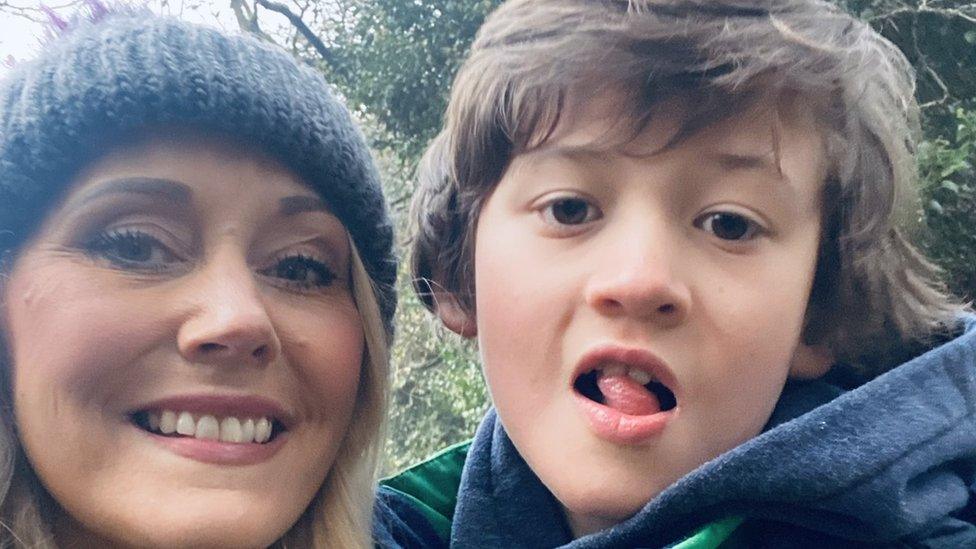
Harry is unable to attended a general dental practice because he needs to go under general anaesthetic to get dental treatment done.
After his treatment was cancelled to relieve pressure on the health service, Harry's pain escalated, said the County Tyrone mother.
He was taken back in to hospital for a scan and an x-ray to try to pinpoint the issue.
Deirdre said she was told Harry has now developed bowel problems as a result of his reduced food and water intake.
"His dental issue is now causing more issues. In a way, it increased the pressure," she said.
"We saw more staff over those two days than we would have seen if had got his treatment done originally."
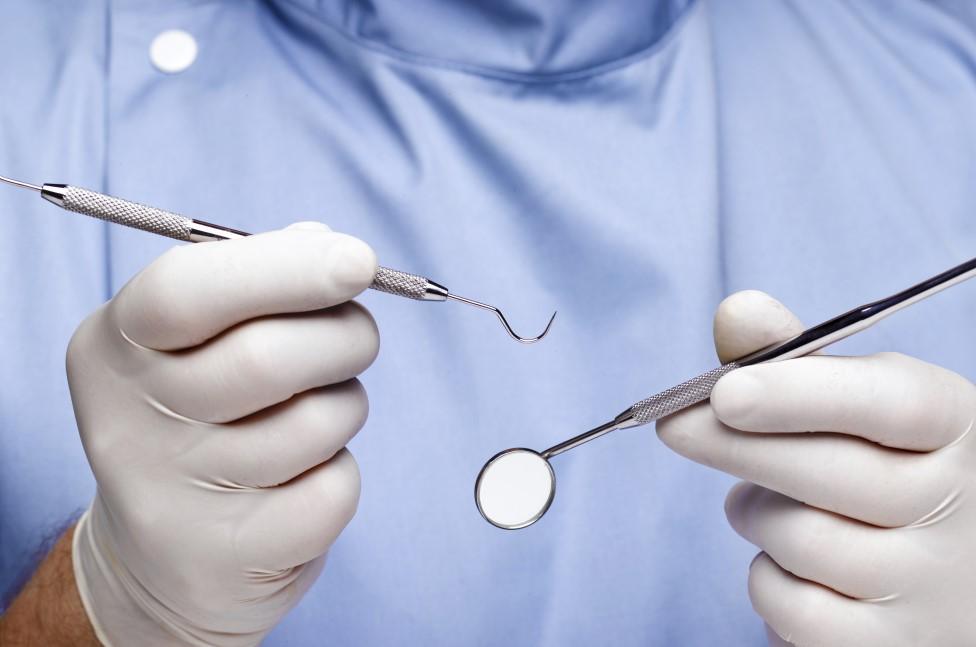
"We can't even send him to school because he's in so much pain," said Deirdre.
"It's not fair to him and it's not fair to the staff," she said.
"If I sent him in and he ends up getting called but then tests positive for Covid, then he doesn't get the surgery and he's bumped down the list again.
"I want to make sure that he can get rid of this pain. It's about keeping him safe for that."
"Morally wrong"
Harry was unable to attend a general dental practice because he needs to go under general anaesthetic for his treatment.
"He has no understanding of why he would need to get a dental procedure done because he doesn't understand that the work that will be carried out will help ease his pain and ease his symptoms," Deirdre said.
"Harry would struggle if you were trying to put him into a chair to do this work, so it's the less traumatic or invasive way for him to have the treatments done."
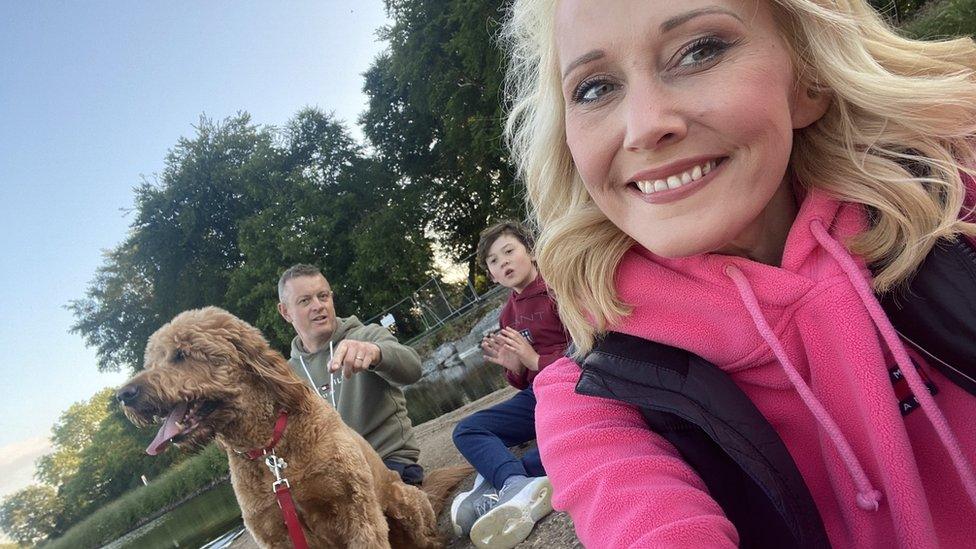
Deirdre Shakespeare says it has been "a terrible experience"
Deirdre said she asked the community dentists if she could pay privately for the procedure but was told it was not possible in Northern Ireland.
"At that point you're going to do anything as a parent to stop your child from being in pain," she added.
"It's just a terrible experience to watch your child not being able to cope. It just seems morally wrong."
While the Covid-19 pandemic has affected the service, Deirdre said this issue had been here for a long time.
"If I had dental pain I would be able to go to the dentist and get it treated very quickly, whereas our kids are waiting weeks or months to even get on the waiting list - and that was before Covid.
"I don't think our kids are valued the same."
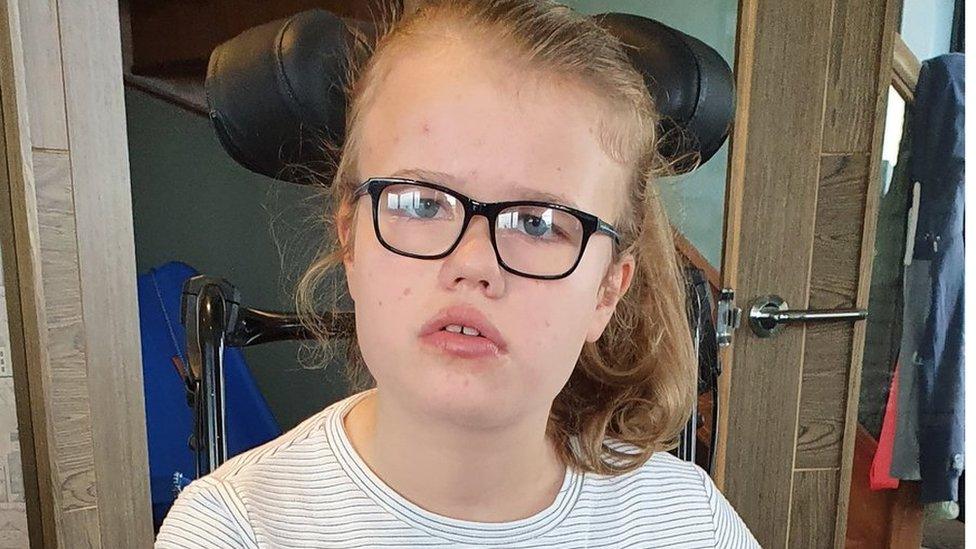
Lilia has a rare genetic disorder
In County Londonderry, Lilia, 13, has a rare genetic disorder which causes a severe physical and learning disability, as well as epilepsy.
Because of these difficulties, she does not understand that she needs to hold her mouth open during the appointment, making visits to the dentist very difficult.
A number of years ago Lilia attended a general dental practitioner who noticed a build up of plaque on her teeth.
The dentist said they would refer Lilia to a community dentist who would be better suited to treating her because of her disabilities, but warned that it could be a number of years before she would be seen.
In January 2021, her mother, Christine, found out that Lilia had only recently been referred and had joined the bottom of the waiting list.
With the pandemic straining services and the risk of tooth decay growing, Christine was shocked to hear that she would not be able to pay for Lilia to be seen sooner.
"Lilia should not have to wait until her teeth rot to be seen," she said.
"Tooth loss is a major issue for disabled people and the neglect of dental care is unacceptable."
Backlog

The British Dental Association said dentistry is far from being "business as usual"
The British Dental Association added: "If someone requires treatment under a general anaesthetic they go on to a waiting list, and at the moment the list in some trusts is thought to be around six months.
"Dentists' capacity to treat patients, including those with learning difficulties, has been severely reduced by the mandatory social distancing measures and Covid restrictions in place, so dentistry is far from being business as usual."
The BDA said it was also growing increasingly concerned about the oral health of elderly patients, particularly those who live in nursing and residential homes.
"The initial suspension of dental services, and the impact of the current restrictions on delivering care means there is a huge backlog of cases."
All of the Northern Ireland's Health and Social Care Trusts were contacted by BBC News NI for a response.
A spokesperson for the Southern Trust said between April 2020 and August 2021 they treated 610 children under general anaesthetic who were experiencing severe pain and/or infection.
"The Community Dental Service has worked closely with theatre teams in our hospitals and General Practitioners in the Southern Trust to ensure that those children with the most urgent need have been prioritised throughout the pandemic," said the spokesperson.
"We do acknowledge that the trust is not able to be as responsive to the needs of children who have dental problems as we were able pre-covid and there have been delays in arranging to bring these children in for care even when they are experiencing dental pain.
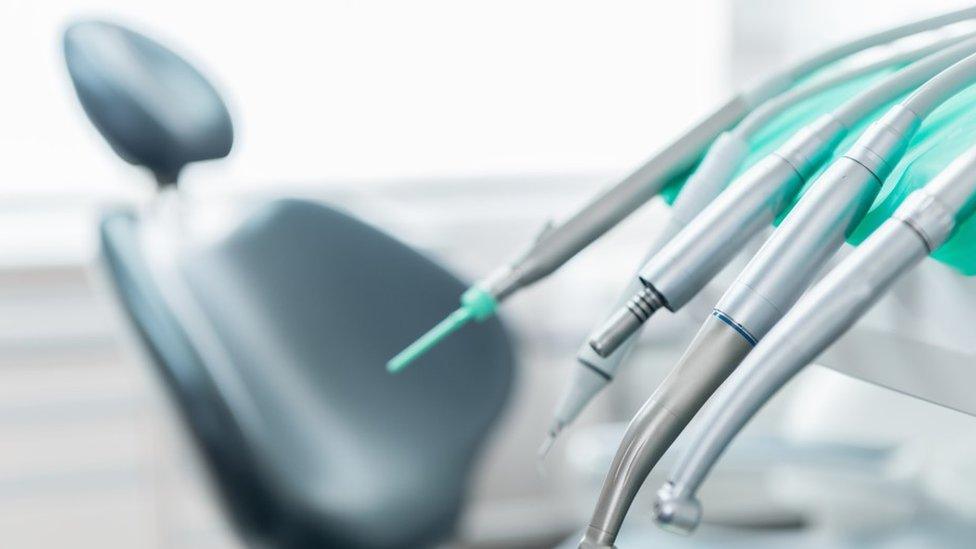
The "unavoidable wait for treatment" will continue, the South Eastern Trust said
"We apologise for the any distress this has caused."
The Northern Health and Social Care Trust said the community dental service had been affected by the "considerable and sustained demand" for theatre slots and specialist medical staff.
"General anaesthetic (GA) theatre lists have largely been focused on cancer and other urgent surgery," a spokesperson said.
"This has reduced theatre access within the community dental service meaning routine GA dental extraction procedures have had to wait longer."
The South Eastern Trust said the "unavoidable wait for treatment" would continue.
"Covid-19 is continuing to place unprecedented demand and pressure on both hospital and community services," said a spokesperson.
"In order to prioritise patients in most urgent need, many routine procedures have had to be unavoidably delayed.
"Community dental teams are doing their utmost to provide appropriate and timely care for patients referred into the service."
At the time of publication, no response had been received from the Western or Belfast Trusts.
- Published20 July 2021
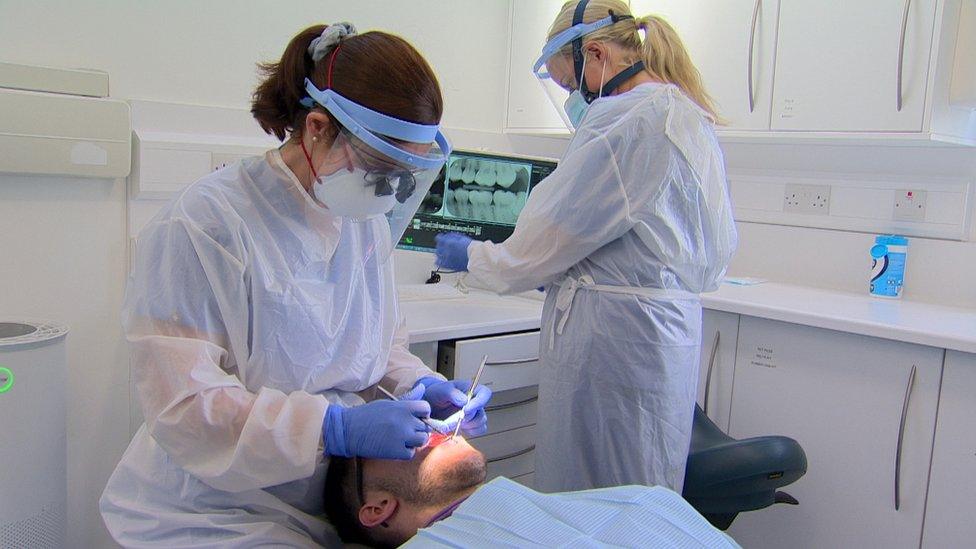
- Published29 August 2021
